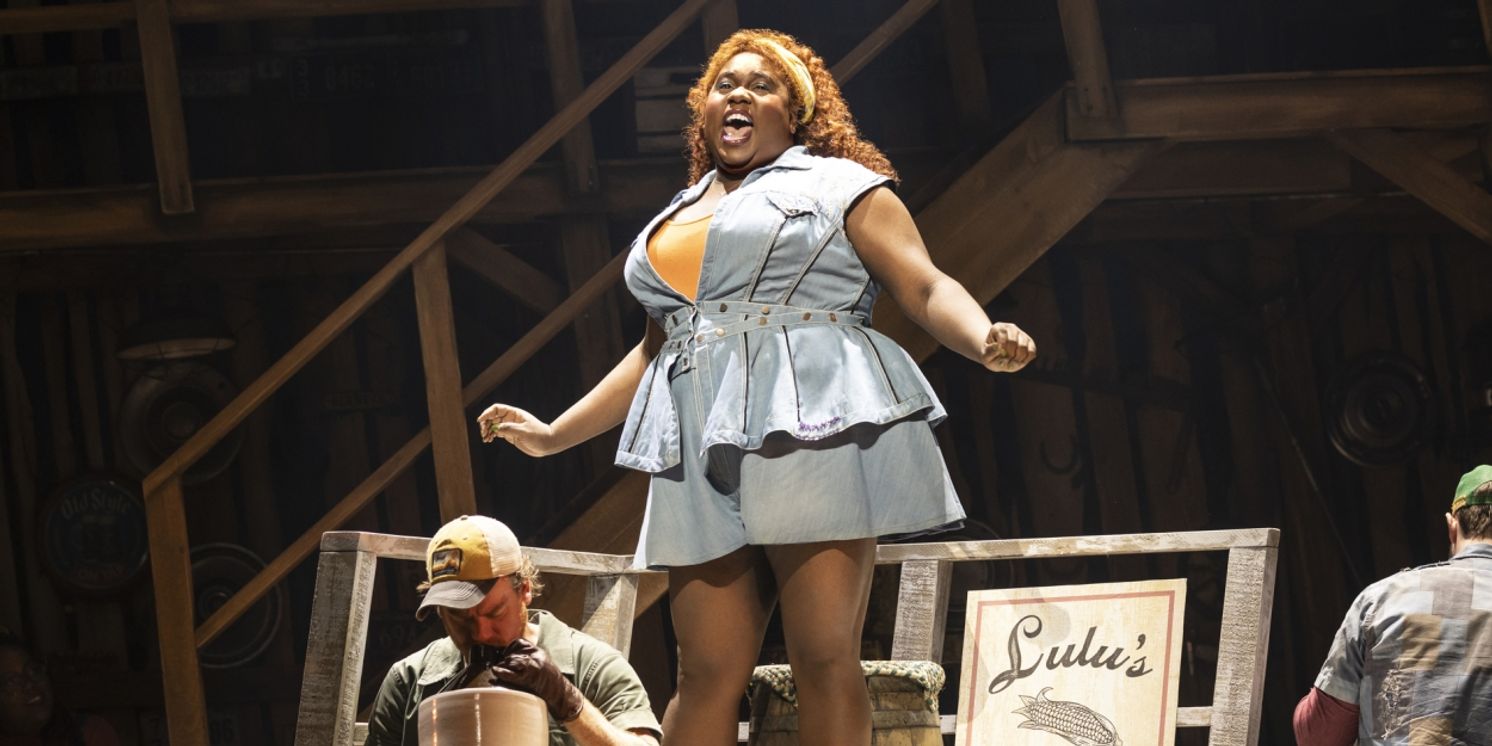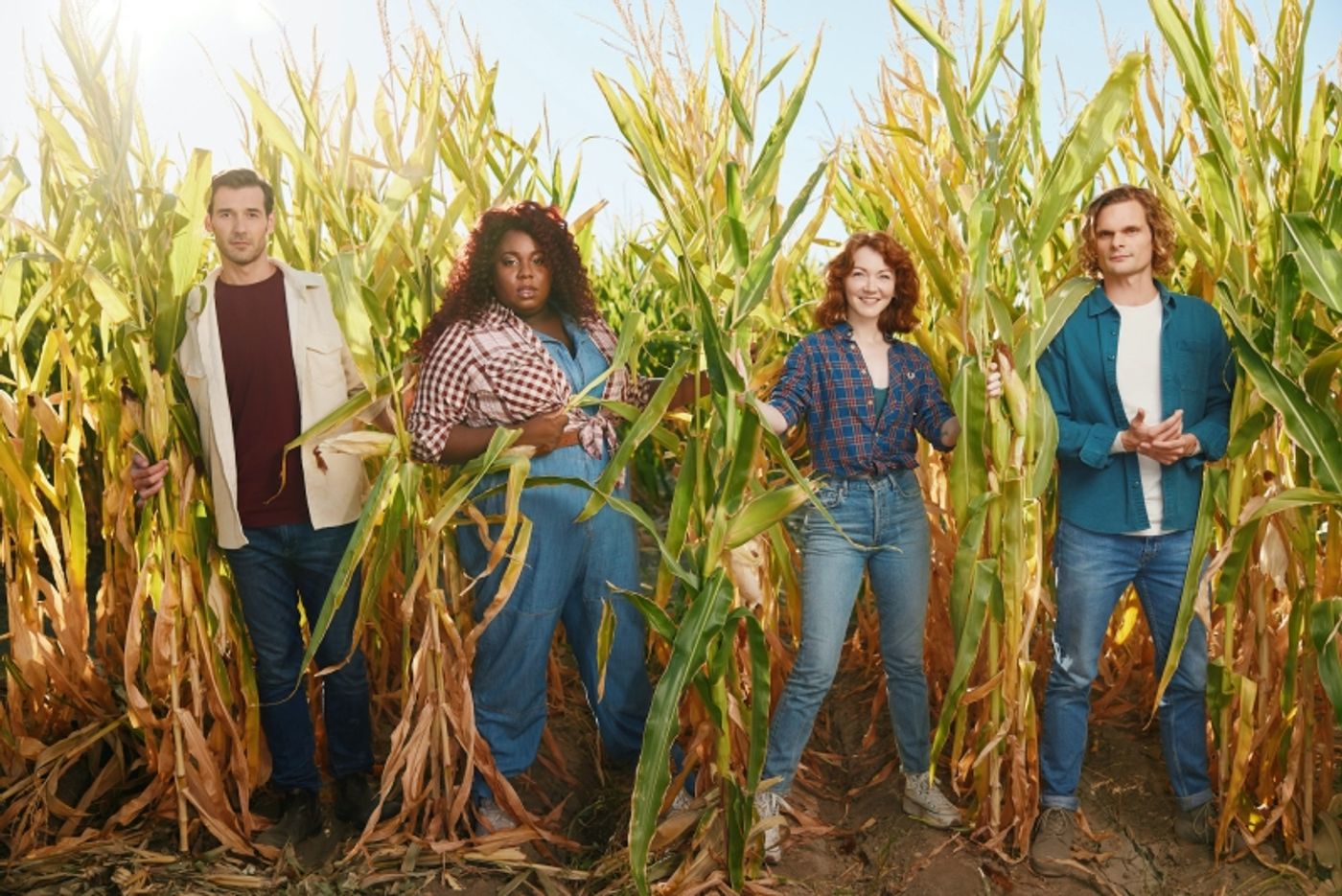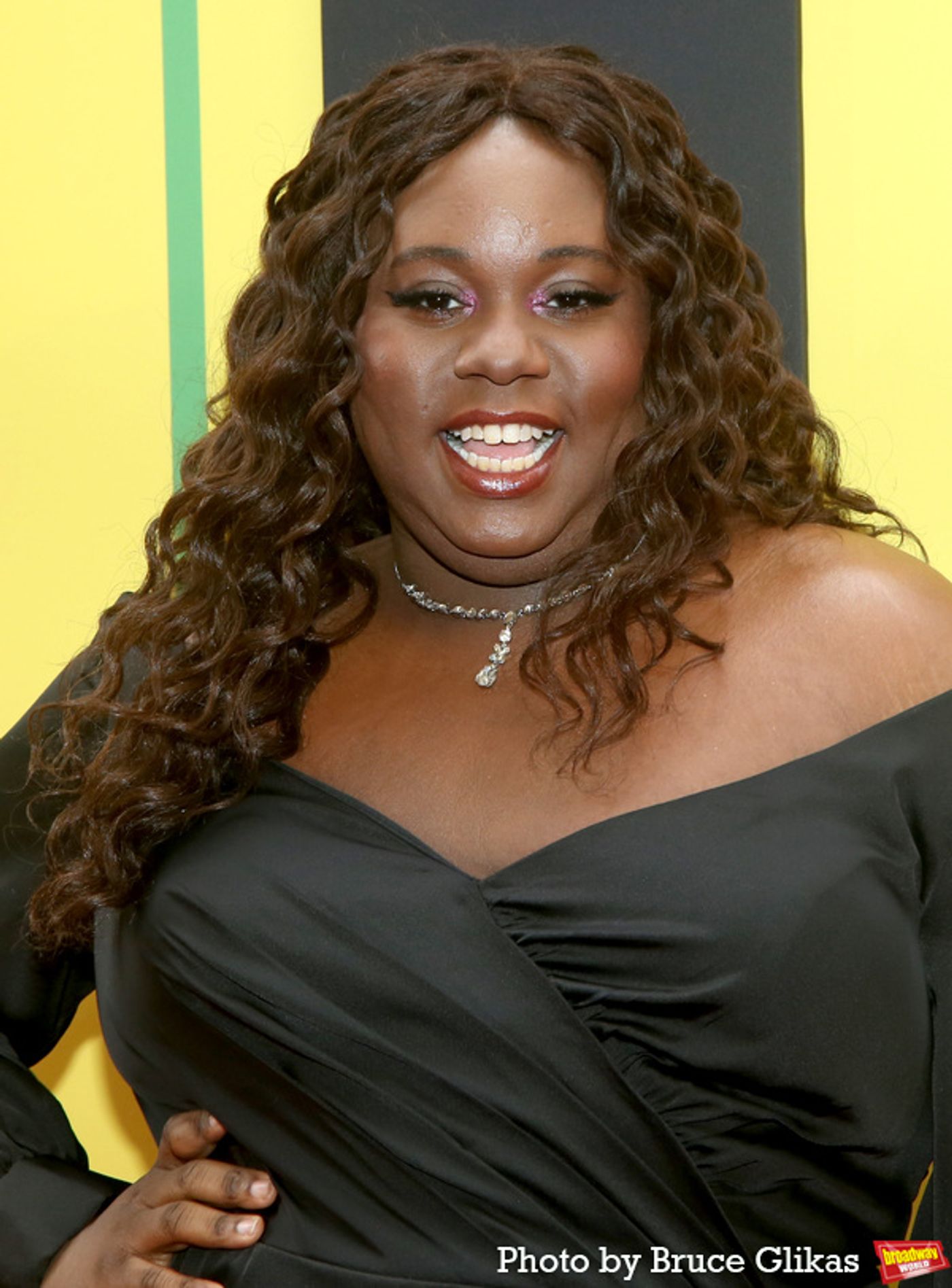Interview: How SHUCKED Star Alex Newell Is Manufacturing Standing Ovations With 'Independently Owned'
Alex Newell is a star of stage and screen best known for his appearances in the Tony-winning revival of Once On This Island, Glee, and Zoe's Extraordinary Playlist.

Liberated, educated, motivated. These are just a few adjectives used to describe Alex Newell's luscious local entrepreneur, Lulu, in the hilarious new musical, Shucked. But overrated? Not according to audiences.
Each night, Alex and Lulu have audiences leaping to their feet thanks to the single lady anthem, "Independently Owned", a bluesy bluegrass paean to self-suffiencieny and sensuality. Spotlighting Newell's trademark towering vocals, the song has quickly earned its place as a favorite among fans, celebrating the self-described, "one-woman whiskey dynasty," for her business savvy, sky high standards, and unabashed sexuality.
We had a minute to chat with Alex about the song and its rapturous reception from audiences at the Nederlander Theatre. See what Alex had to say about how his Shucked alter ego has gone from manufacturing whiskey to mass producing standing ovations below!
"Independently Owned" really feels like it's been tailored to your incredible vocal range. What was the process like of building this moment to it's current showstopping state?
I guess the first standing was the first preview, and that is truly all Jason Howland. I've worked with Jason before and he really customized and made the arrangement, especially the ending. Everything else was pretty much the same, but the ending we kept tinkering with and we kept trying to take it one step further and then another step further, and finding what was campier, and what made it effective. When we did our run in Salt Lake City, you could feel the audience wanting to cheer, but we kind of didn't let them have that opportunity to clap and cheer at the end of the number. We got them there, and we just popped the balloon and everything just fell to the ground. Not in a bad way, but we didn't let them do what they wanted to do. So when we came back to New York and we really tailor-made it to that experience.

At the performance I saw, the crowd couldn't be contained by the end of the number, and from what I hear, that's become a regular thing for you. What has that been like to experience on basically a daily basis?
I literally cannot see what's happening [laughs] it's the hero shot. There's every light on me in that one moment. I have a spotlight on me, then I have two or three overheads or some kind of exorbitant amount of lights over me. Then I have two coming from the side, three coming from the house, plus the spotlight. So all I see in that moment is white. But it's lovely. The reason why I come back to theatre is because you don't get instant gratification on film. You don't get that immediate cathartic response all the time. You have to go away and wait for the edit, and it might not even be the take that you liked, it might be the take that somebody else liked better. You can't control what everybody else does. In theater, you can control it. You are in control and you can do it on your own. So to have that instant gratification of your choices, what you did, what you brought, is really brilliant. You don't get that all the time, and so to have that is such a blessing.
What was your relationship to country music before this part? Was there any prep to get acquainted with the genre?
Baby, I don't do country. I did one country song once. It was on Zoey's Extraordinary Playlist and it was kind of like a joke because it's when Zoe's powers were switching everybody's songs. So, the way I approached it was that at the end of the day it's a good old, big old, Broadway sing. So I approached it how I would approach anything and everything most days. I really didn't try to do too, too much.
And just in terms of vocal health, what are you doing to stay up to the task of this song eight times a week?
Darling, what is vocal health on Broadway? What is it? I wish I knew! [laughs] No, first there's the technique of it all. I rely so much on my technique and trying to figure out what that is. I didn't want do anything that I couldn't do in the rehearsal room. What I do in rehearsal is I keep pushing myself and pushing myself while living an authentic, normal life without thinking about what my vocal health would be, beause I'm a huge proponent of you can do your eight shows a week, but you also can have life outside of that. And what that takes is being responsible and having moderation in what you do and I crafted this track in this song into something that I could do every day. But I go to a voice coach and I'm seeing my ENT not a lot, but enough that I'm checking in to make sure that everything is healthy. I'm drinking water like it's going out of style and I sleep. I try to get as much sleep as I could possibly ever want and need at the same time.

I have to tell you, as a 30-something single woman, hearing the lyrics for the first time, it felt really empowering and like I had found a new anthem of sorts.
That's how I truly approach it. The song is an anthem of Lulu's, essentially comparing her whiskey distillery to her own life and success and how she's been fine with being on her own. My draw to this role is, I allegedly [laughs] just turned 30 in August of last year. I've been trying to figure out what that means while being single, and making this career that I love and that has had so many ups and downs, and to do that all by myself. Not in the sense that there weren't people that helped me get to where I am, but in the sense that I made all of my decisions on my own. I wasn't bouncing ideas off of a partner or someone.
So it's been learning to be okay with that. Even having like all my friends around me getting fully married and having kids and really starting to settle down, there's some of that personal experience that I relate to what Lulu is actually going through and her relationship to that. Coming to terms with that is all fine and dandy because the underlying truth is it's okay to need somebody else at the same time as being very independent.
Another thing I love about Lulu, and all the Shucked characters, is that you all seem to be working in existing, familiar archetypes while generating entirely new characters. It's archetypal but not stereotypical and Lulu is a big part of that.
Shucked is such a familiar story. Not the sense that it's been done before, but it is the archetypes of the same themes that we've all kind of seen before. With that, this is the first time in the back of my mind that I can remember, in all of all the shows I've seen, that you get this unabashedly plus size black woman just being sexy. I don't see that happening often. And it's not in just like the hokey, wink-wink, joking sense. I compare her to Lola in Damn Yankees. She is just blown up and living in her own body.
Have you found inhabiting this character to be a personally empowering experience?
You take what you can out of it. So there are definitely some things that I've taken like in a physical sense. I never have my arms out ever in a costume and she has all of her arms out, all of her legs out and is just giving skin and body. So I took that. I'm more comfortable in my own body and that's one thing that I've taken away from Ms. Lulu.
And just for inquiring minds, what exactly is your highest note? Do you know?
Baby, when I find out, I'll let somebody know! [laughs]
Videos

